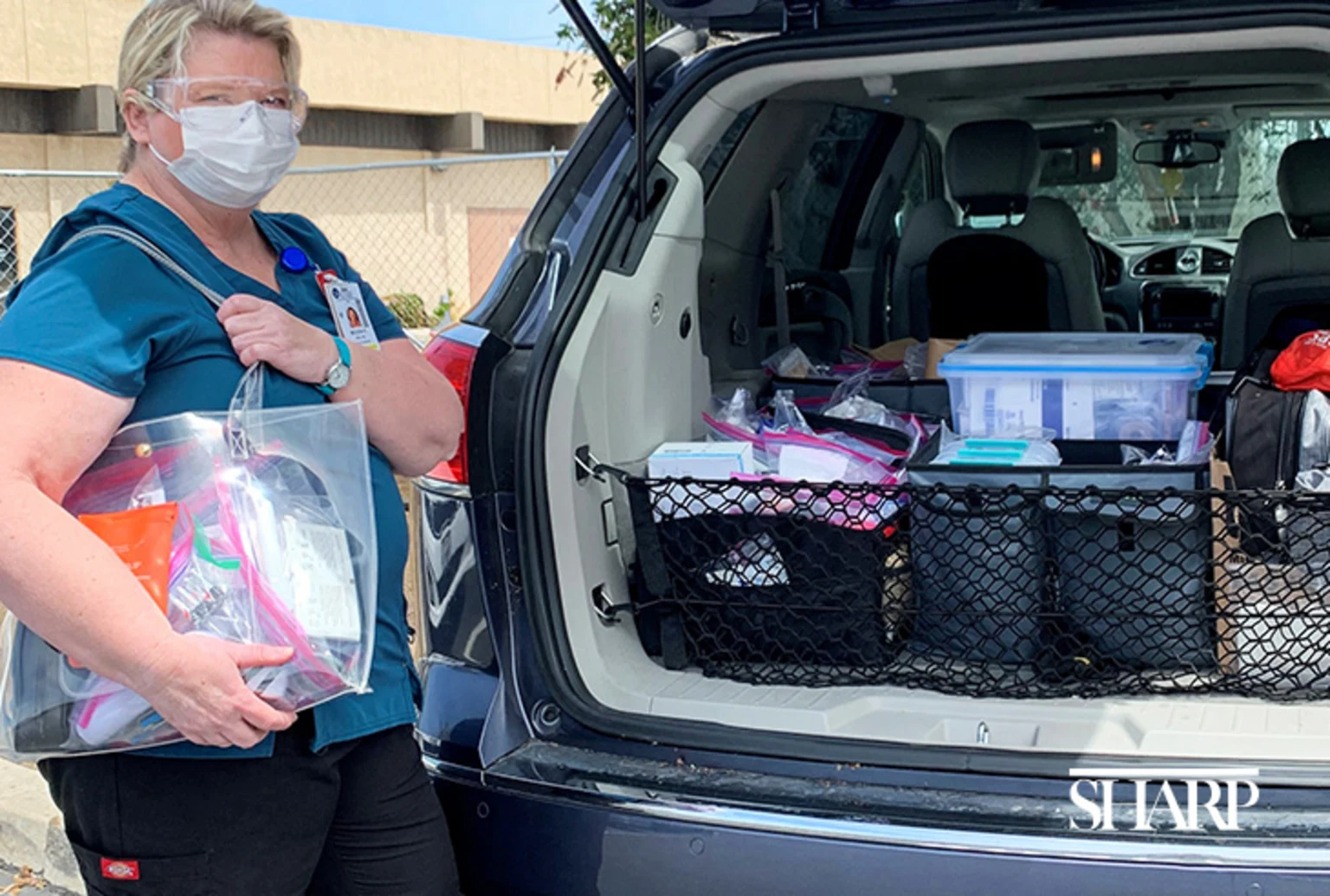
9 free preventive care benefits
From screenings to vaccines, these benefits are free with most health insurance plans.
We've seen the photos and videos from the front lines of hospital intensive care units (ICUs) throughout the pandemic: Doctors, nurses and other care providers covered from head to toe in personal protective equipment (PPE); signs on walls and windows reminding people to practice extra safety precautions; and machines surrounding beds filled with patients, many being treated for severe
COVID-19 illness.
But there are other scenes of front-line patient care not often captured for all to see. These occur in patients' homes, where home health care providers treat people away from hospitals, usually without the in-person company of colleagues and access to the equipment a hospital unit provides. And yet, home health clinicians still provide the exceptional care patients and their families expect, allowing them to remain in the comfort of their homes while they heal.
"Home health clinicians see patients after being hospitalized for heart or lung problems or surgery, as well as patients who need help with diabetes care, IV infusions and tube feedings," says Lynelle Davis, RN, MS, director of
Sharp Home Health. "We see any type of patient that you would see on a medical-surgical floor in the hospital - but in their homes - to provide treatments and teaching on their medicines; watch for symptoms to report to their doctor; and monitor their diet, exercise and disease process."
While home health clinicians provide this type of care year-round, performing this essential job during the COVID-19 pandemic has required significant adjustments. From having to integrate the use of additional PPE to caring for patients with COVID-19 and increasing their personal risk of exposure, home health clinicians have become the unsung heroes of the past year.
Caring for patients during a pandemic
During the pandemic, home health care providers have had to be much more aware of their PPE supply. Each is responsible for tracking how much PPE they have on hand and how much they will need over each 2-week period. They must also ensure they are properly putting it on and taking it off, avoiding cross-contamination, and disposing of it correctly.
"For patients with COVID-19 or suspected to have COVID-19, we wear goggles, an N95 face mask, gowns and gloves," says Moura Everhart, RN, BSN, a home health clinical nurse. "Putting these items on in a hospital is well-controlled with someone watching you and assisting. In home care, we are on our own in different terrain and weather, including rain and wind, and must be extremely mindful to put it on correctly."

Moura Everhart, RN, BSN, knows the importance of putting on her equipment properly when visiting patients with COVID-19 or suspected to have COVID-19.
Additionally, Davis reports that home health clinicians, who see approximately 5 patients a day, are often spending more time with each patient than they did before, alleviating fears and providing COVID-19 education to the patients and families who hear conflicting information from other sources. They wonder what is safe, what activities they can perform, and whether it is OK for them to visit family members or go to stores to get food and their medications.
According to Carmen Picaso, an advanced clinician who has been with Sharp Home Health for 24 years, people who have been diagnosed with COVID-19 require even more care and education.
"Patients who have been discharged from the hospital after a COVID-19 diagnosis are usually very weak, short of breath, must take multiple new medications and often require oxygen therapy," Picaso says. "So teaching the patient and family can take extra time."
The importance of self-care
What's more, home health providers also have to consider their own health and the health of their loved ones. According to a recent
study, home health care workers are at increased risk for coronavirus infection and have faced additional risks to their physical, mental and financial well-being during the COVID-19 pandemic.
Home health clinicians must be tested for COVID-19 often and monitor themselves for any signs of illness. Davis finds it equally important to do a self-check on how she's feeling mentally and emotionally.
When feeling tired or overwhelmed, she finds ways to re-center herself, whether it's by enjoying some downtime, a favorite food or a phone call with family. Everhart turns to family video calls, reading and crafting. And Picaso finds peace in knowing she is helping to keep patients at home with their families, especially during the pandemic.
"It can be exhausting at times," Davis shares. "And yet, many home health care providers report they have never been more proud to be a home health care provider than during the pandemic."
Learn more about how Sharp Home Health supports healing at home.
The Sharp Health News Team are content authors who write and produce stories about Sharp HealthCare and its hospitals, clinics, medical groups and health plan.

Carmen Picaso is an advanced clinician who has been with Sharp Home Health.

Our weekly email brings you the latest health tips, recipes and stories.